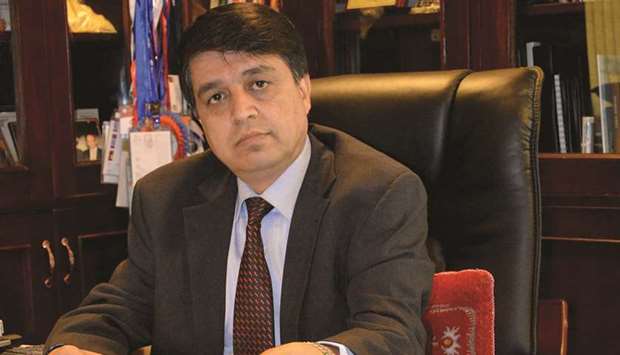Finding a natural sales channel is harder than it sounds. Countless businesses falter at the outset because they didn’t take the time to listen to the marketplace and analyse its needs. But, Chandra Prasad Dhakal, founder and Executive Chairman of IME Group Nepal, had everything sorted when he kicked off his business back in 2001. He listened and understood the issues way too well and that accredits to IME growing into one of the leading business groups of Nepal, in less than a period of two decades. With an investment outlay of $100 million ploughed in a gamut of diverse sectors including remittances, banking and insurance, automobiles, energy (hydro-power, industrial gas), logistics, IT, infrastructure and tourism, IME is steered by more than 3,000 highly efficacious human capital.
Dhakal have been the Honorary Consul of the Republic of Indonesia to Nepal since 2010. He is also the Chairman of Western Region Development Forum, a non-profit organisation for the overall development of the western part of Nepal that includes three zones and sixteen districts.
Community sat down with him to run the gamut of a rich two-decade journey of transforming Nepal and bringing IME to the new heights of success.
Tell us about the investment climate of Nepal.
Investment climate in Nepal has become much more favourable in recent times. After the country promulgated its new statute in 2015 and held elections on all three levels, there is political stability in the air. The stability has opened a wide range of opportunities as the government is implementing new policies which are more investment friendly. Nepal can be considered as a good place to invest in sectors including tourism, hospitality, hydropower, agriculture and infrastructure building.
You are associated to remittance business and tourism. How do you think remittance can help boost country’s economy?
We have been in remittance business for a long time. During the 2000s, many Nepalis started to move to Gulf and Malaysia. Thereafter, we founded IME, a formal money sending business, which formalised and replaced informal and untraceable measure of money sending mechanism. Gradually, we channelled remittance into big projects, hydropower project being one of them. We also partnered with Nepalis abroad to build Chandragiri Hills, a cable car and tourism business. We have set up examples.
What’s your take on the tourism of Nepal?
We have observed that domestic tourism in the country has greatly contributed to the overall tourism industry of the country. Nepalis are visiting different destinations domestically. Pokhara, Janakpur, Rara Lake, Lumbini, Mustang, Annapurna and Everest regions are the key tourist destinations. As domestic tourism is gradually getting momentum, we are correspondingly getting confident on pulling in foreign tourists.
Recently Lonely Planet listed Kathmandu as one of the top ten cities of the world, because of its breathtakingly beautiful landscapes. How you think Nepal can attract more tourists to boost the country’s economy?
This is indeed great news that Lonely Planet has listed Kathmandu as favourites. This itself greatly contributes to attract more foreigners to Nepal. In order to attract more foreigners, we need to invest and build more infrastructures and promote our unique natural as well as cultural heritage.
How can we attract Qatari investors and tourists to Nepal?
Kathmandu and Qatar have a direct flight. And, Qatar is a gateway to Nepal bound tourists. The two countries are just four hours away. The Nepali panorama is attractive to Qataris and we can see so many of them trekking around Everest and Annapurna region these days. This is a good beginning.
Nepal can also become a destination for Qatari investors. Tourism, hydropower, infrastructural development and commercial agriculture are the sectors in which Qatar can invest. These investments will benefit the investors to a large extent.
I have personally met and have requested Yousuf bin Mohammed al-Hail, Ambassador of Qatar, regarding the joint investment projects. The recent visit of Bidhya Devi Bhandari, President of Nepal, to Qatar has also contributed to the bilateral relations which will build confidence in mutual investments.
How do you assess the existing Nepal-Qatar relationship?
Nepal-Qatar relationship has always been cordial and multifaceted. Qatar is looking into possibilities of investment in Nepal. The respective embassies in Doha and Kathmandu are playing a great role to promote trade and investment.
Any message for the readers?
Qatar based Nepalis have learnt a lot whilst working in Qatar and have acquired great skills. It will be great if the migrant returnees from Qatar can utilise these skills in Nepal as well. The remittances that they have been sending have never been wasted. It is their investment in their children’s education, health and quality of life which will ultimately contribute for the prosperity of their life. In addition to this, the remittances they send home can be also saved and invested later in their entrepreneurial projects.

BUSINESSMAN: u201cNepal-Qatar relationship has always been cordial and multifaceted. Qatar is looking into possibilities of investment in Nepalu201d, says Chandra Prasad Dhakal, founder and Executive Chairman of IME Group Nepal.
